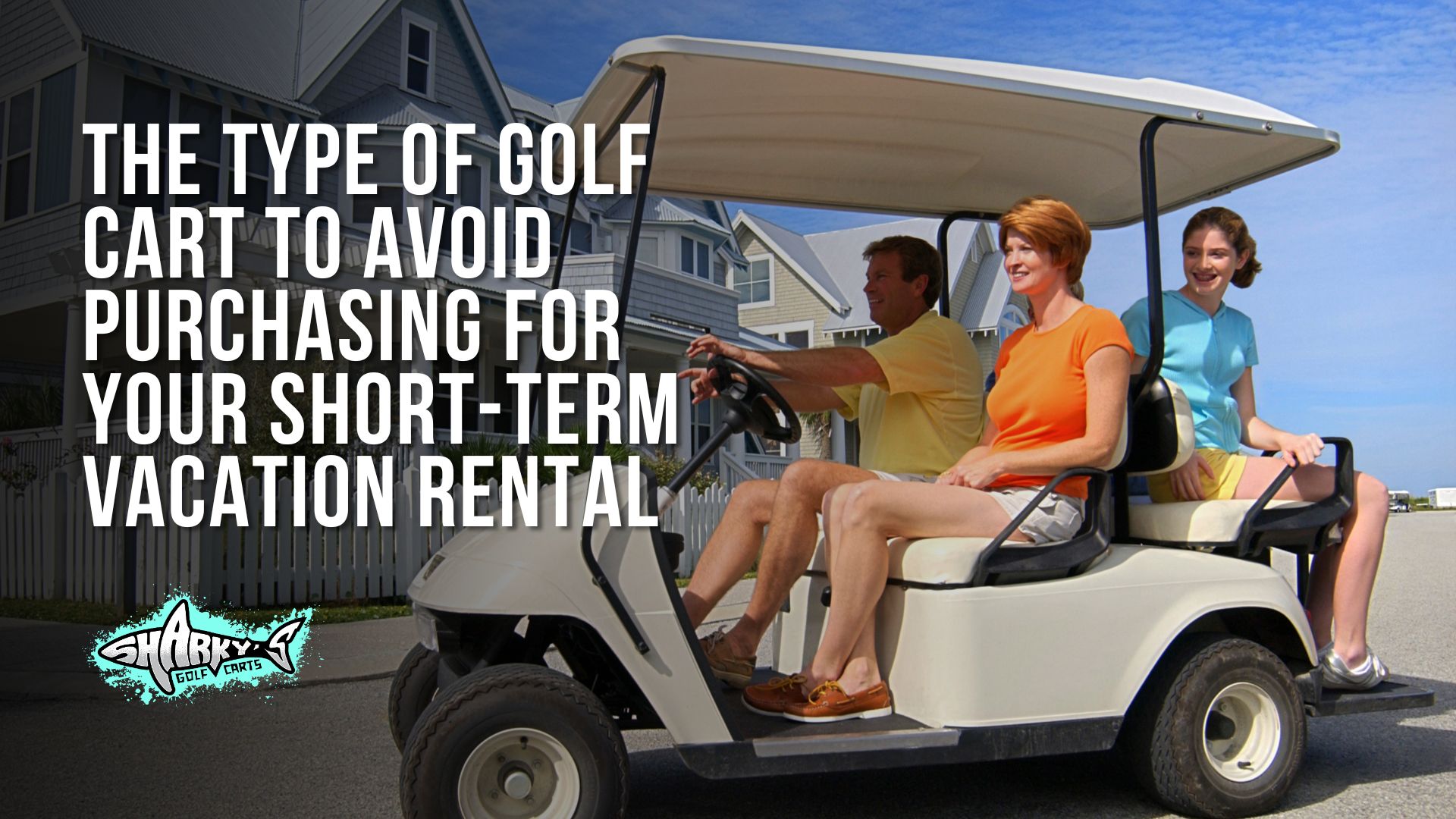When it comes to outfitting your short-term vacation rental with a golf cart, your decision can make or break the guest experience—and your bottom line. Many property owners mistakenly believe that any cart will do, only to discover costly mistakes too late. Whether it’s dealing with guest complaints, unexpected repair bills, or warranty denials, the wrong golf cart can quickly turn a profitable amenity into a major liability.
We’ve built a successful business around golf cart rentals, and over the years, we’ve learned firsthand which carts to avoid and why. In this article, we’ll break down the most common mistakes property owners make when purchasing golf carts for short-term rentals and explain which types of carts pose the biggest risks. From warranty issues to overloaded tech and safety hazards, this guide is here to help you make an informed investment—one that improves your guest experience and saves you time, money, and stress.
1. Carts with No Commercial Warranty Coverage
When purchasing a golf cart for your short-term vacation rental, one of the biggest mistakes you can make is choosing a cart that lacks commercial warranty coverage. Many manufacturers include warranties with their carts, but those warranties often come with restrictions that exclude rental or commercial use. This means that even if your cart is brand new, the moment it’s used by a guest, the manufacturer can deny coverage for repairs or replacements.
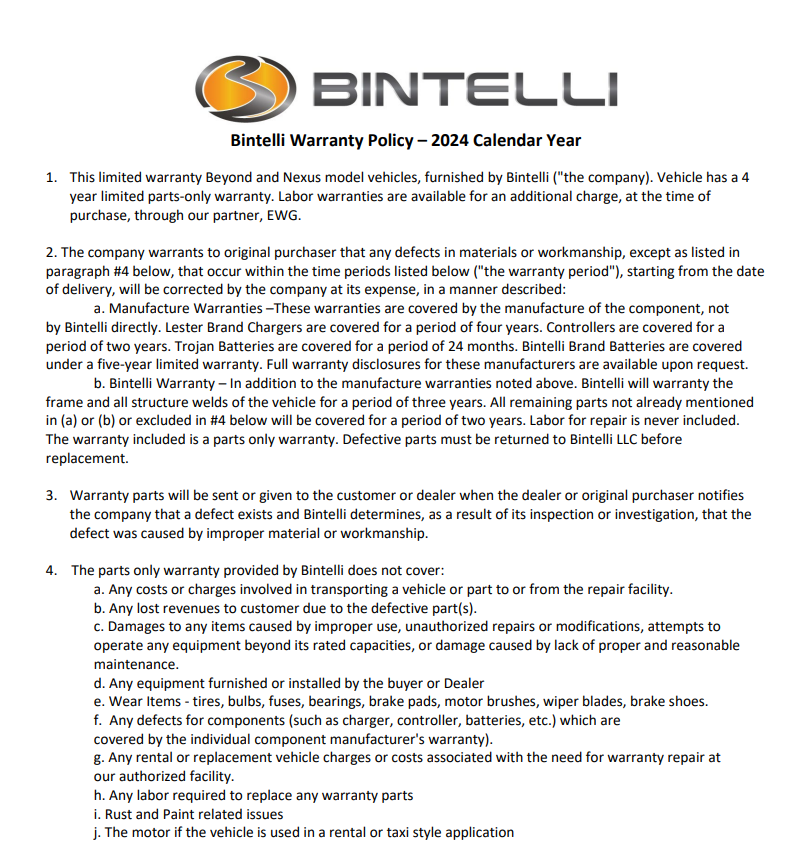
Manufacturers like Bintelli, Kandi, and Venom EV are clear in their exclusions. Bintelli specifically states that the motor is not covered if the cart is used in a rental or taxi-style setting. Kandi voids warranty coverage for any damage caused when the cart is used as a rental or for commercial purposes. Venom EV takes an even stricter stance by refusing to cover component failure or any damage to vehicles used in rental, lease, concession, or commercial applications. These limitations leave you fully responsible for repairs, which can become extremely costly if problems arise—especially since rental guests are typically harder on equipment than private owners.
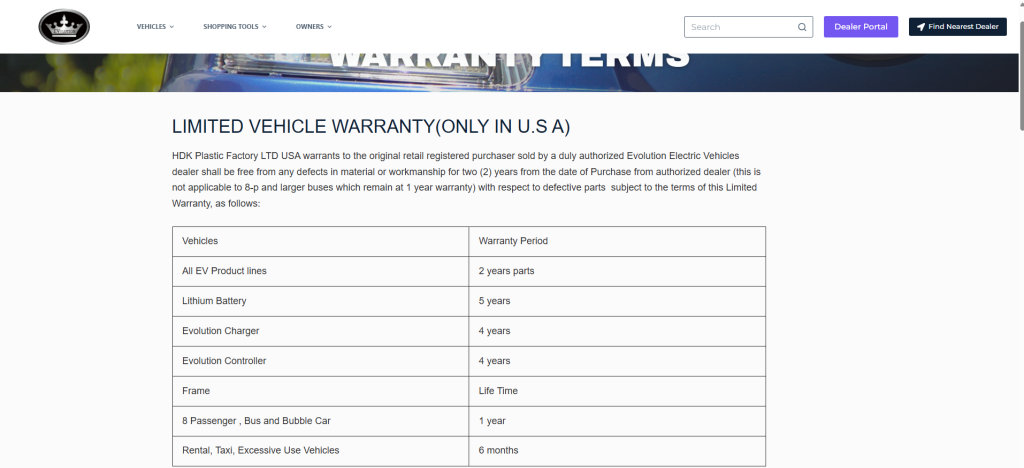
Even among more recognizable brands, some only offer limited coverage when their carts are used for rentals. Evolution, Star EV, Royal EV, and Breezy EV each offer just a six-month warranty in commercial applications. This minimal protection hardly provides enough time to identify or fix long-term issues, and by the time a problem surfaces, you’re likely paying out of pocket.
On the other hand, a few trusted brands offer full warranty coverage even when their carts are used in a rental environment. These include Advanced EV, Atlas, Club Car, Ez-Go, Yamaha, and Vivid EV. These manufacturers understand the demands of commercial use and stand behind their products accordingly. Choosing a cart from one of these companies not only provides better long-term protection, but also reduces your risk of costly downtime and frustrated guests.
Before finalizing your purchase, always take the time to carefully read through the manufacturer’s warranty and confirm that it includes coverage for rental or commercial use. Don’t rely on assumptions or vague sales language—double-check the details yourself. This simple step can protect your investment, lower your maintenance expenses, and ensure your guests have a reliable, hassle-free experience.
2. Carts Overloaded with Tech and Luxury Features
Another major mistake rental property owners make is choosing a golf cart that’s overloaded with tech and luxury features. While these upgrades might seem appealing at first—especially when you’re trying to impress guests—they often cause more problems than they’re worth. In a rental environment, simplicity, durability, and reliability should take priority over flashy gadgets and fragile systems.
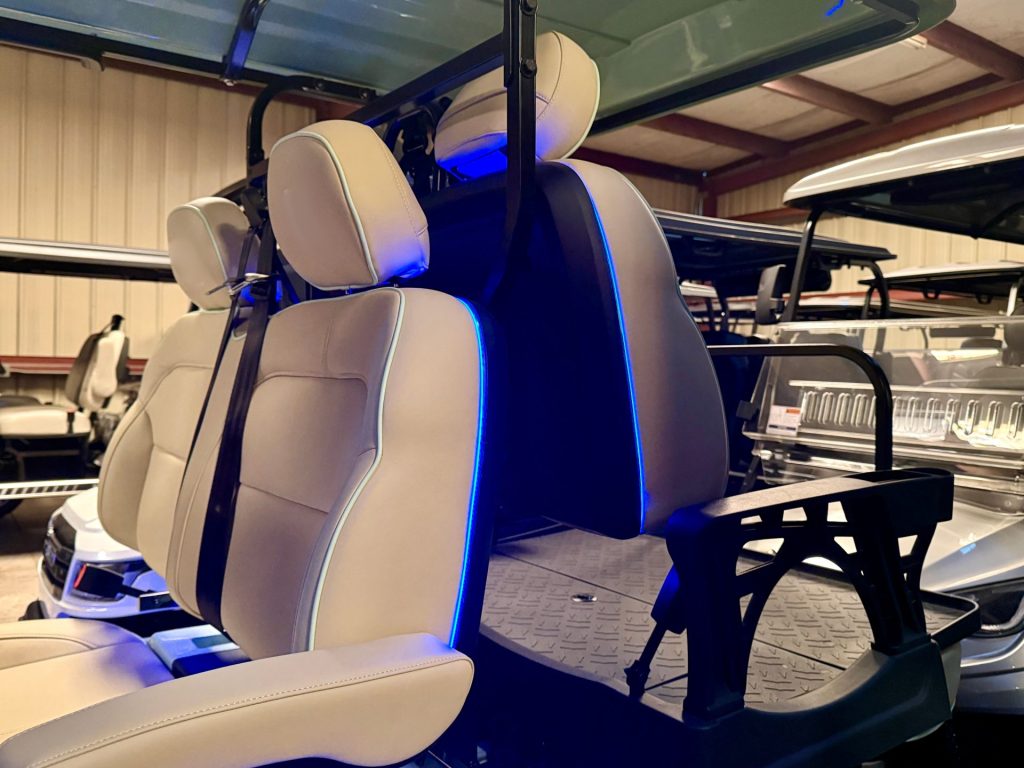
Carts that are packed with various lights—such as seat lights, roof lights, and undercarriage lights—might look attractive at night, but most of these lights are cheaply made and poorly wired from the factory. They tend to break easily, and to make matters worse, they’re rarely covered under a standard manufacturer warranty. Replacing them is not only an added cost but also a frequent maintenance hassle.
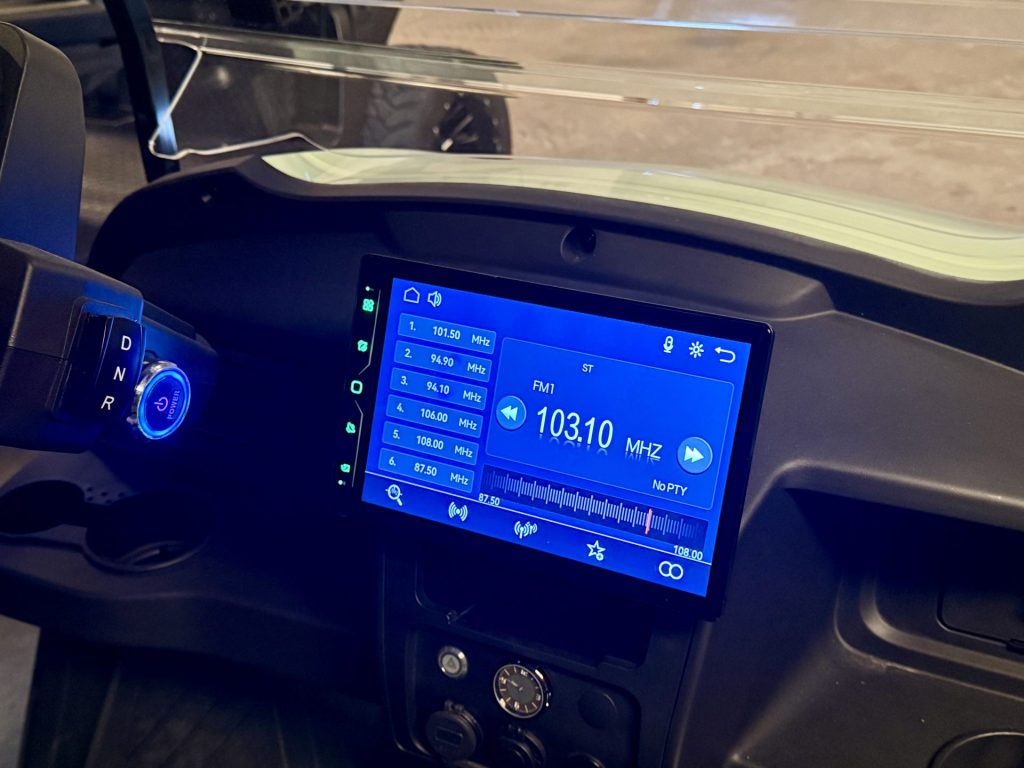
Touchscreens are another feature to be wary of. While nearly every new golf cart now comes with one, these screens are often low-quality, slow to respond, and simply not built to survive Florida’s intense sun, humidity, and fluctuating weather conditions. Guests will inevitably touch the screen with sunscreen, oil, food, drinks, and other substances—leading to sticky build-up, malfunction, and eventual failure. From our experience, touchscreens are usually the first component to break on modern carts, and when they do, they’re only covered by a short-term warranty that typically doesn’t exceed 12 months.
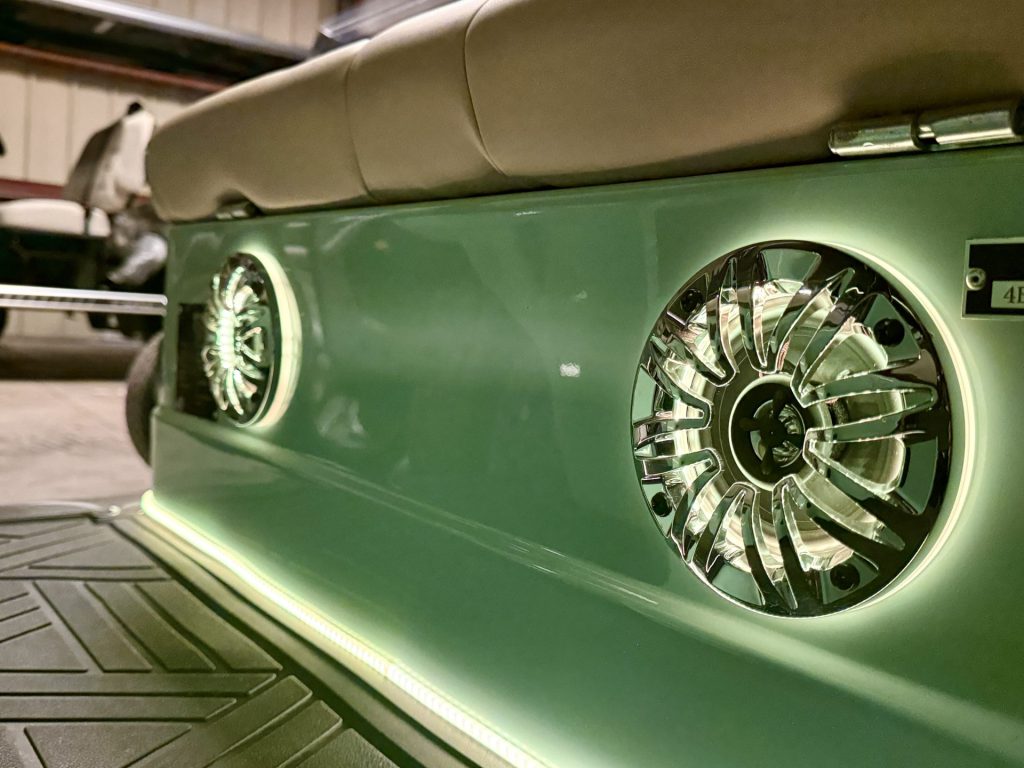
Cheap Bluetooth systems and soundbars are equally problematic. Almost all factory-installed Bluetooth audio on today’s carts delivers poor sound quality and lacks durability. These systems are not built to endure exposure to moisture, salt air, or the general wear and tear of a rental environment. That’s why we recommend choosing a cart that doesn’t come with built-in audio. Instead, if you want to provide Bluetooth capabilities for your guests, purchase an aftermarket system from a reputable company like DS18 or Aquatic AV. These brands offer higher-quality sound systems that are built to last and come with a two-year manufacturer warranty. This is the exact approach we use for all our rental carts—none of them come standard with Bluetooth. We purchase and install all audio systems ourselves, ensuring quality control and long-term durability.
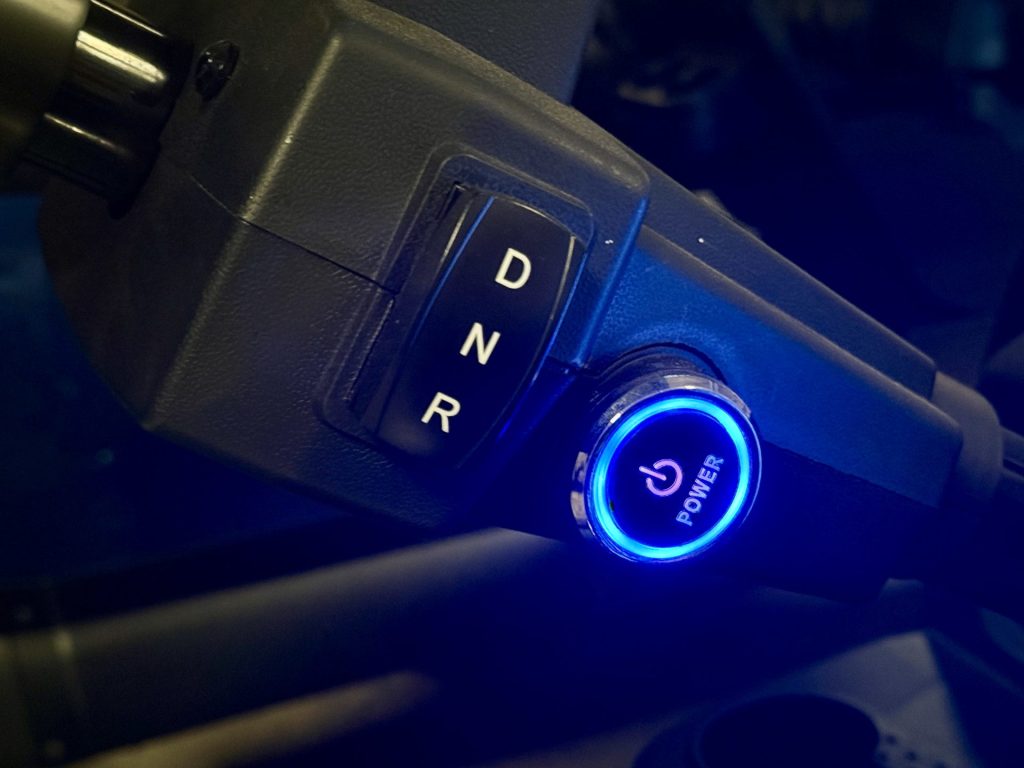
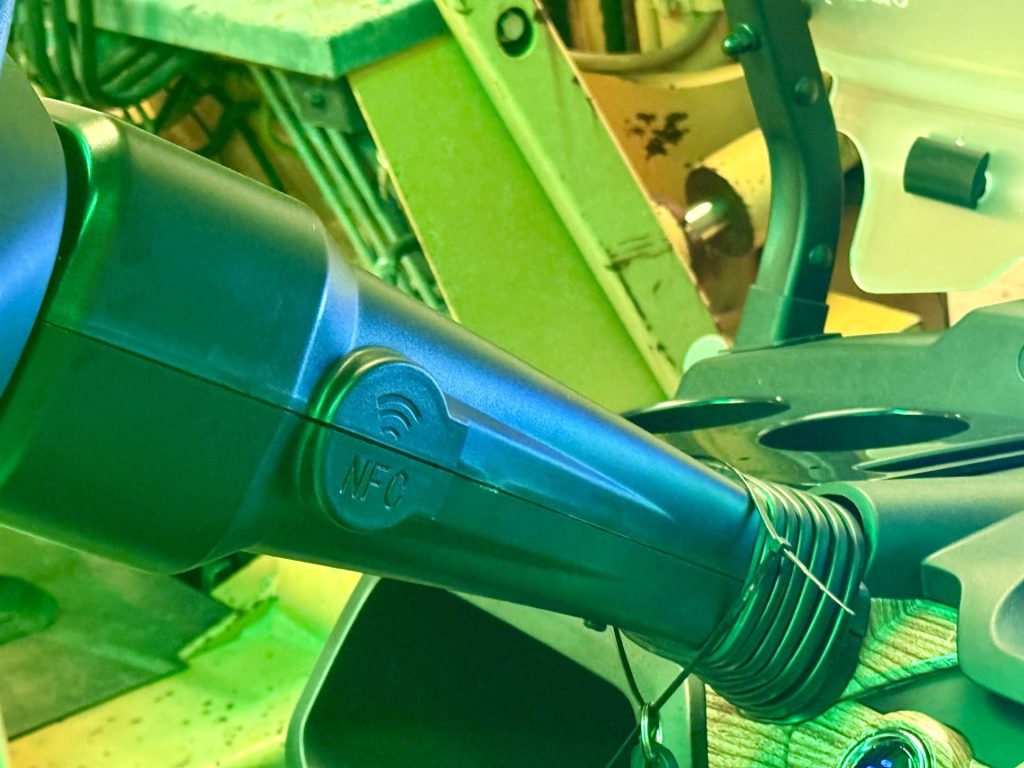
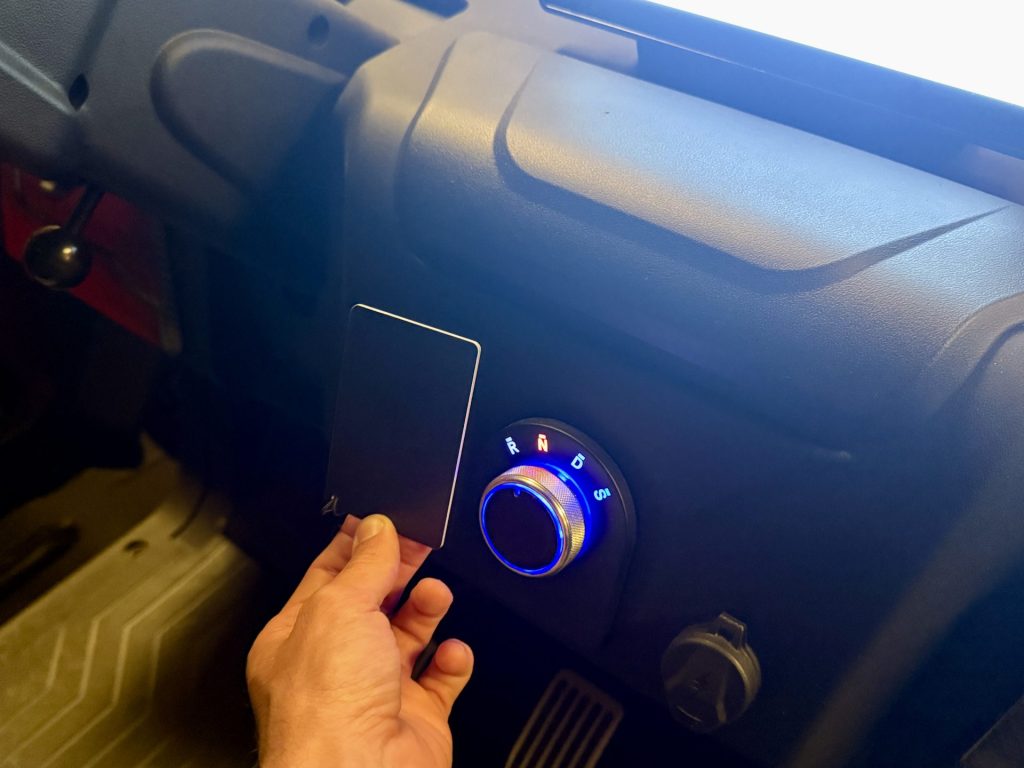
Another trend to avoid is the rise of push-to-start buttons and NFC chip starts. These features may seem modern and convenient, but in a rental scenario, they’re more trouble than they’re worth. Push-to-start systems often require special keys or chip cards that are expensive to replace and easy for guests to lose. In our experience, push-start buttons can be unresponsive or hard to press—especially after some wear. The traditional key ignition is still the most reliable and guest-friendly option. If possible, stick with a standard key-based ignition to minimize confusion and avoid unnecessary technical issues.
While luxury features might seem like a way to stand out, they typically increase the chances of maintenance problems, guest complaints, and warranty headaches. When it comes to golf carts for short-term rentals, less is more—and durability is king.
3. Used or Refurbished Carts with Unknown History
Buying a used or refurbished golf cart might seem like a smart way to save money, but in the context of a short-term vacation rental, it’s usually a gamble that doesn’t pay off. When you purchase a used cart—especially from a private seller—you’re inheriting someone else’s problems without knowing the full history of the vehicle. Unlike cars, golf carts don’t come with a Carfax report, so there’s no reliable way to verify previous maintenance, repairs, or hidden damage.
Used carts are far more likely to experience breakdowns, which can quickly lead to unhappy guests, negative reviews, and lost income. Guests who are left stranded or inconvenienced by a malfunctioning cart will call you—often frustrated and expecting an immediate solution. These unexpected issues result in more phone calls, more out-of-pocket repairs, and more damage to your reputation as a host.
One of the biggest risks of buying used is the lack of warranty coverage. Even if the cart is in decent shape at the time of purchase, you’re on your own if something goes wrong. And with so many golf cart brands having gone out of business in recent years, there’s also a real chance you could end up with a cart that no one services anymore—making repairs difficult, expensive, or even impossible. If you buy from an independent seller who doesn’t provide service records, you’re essentially buying blind.
If you are absolutely set on purchasing a used golf cart, make sure you do it the right way. Only buy from a reputable dealer, and request as much documentation about the cart’s history as possible. Research the brand in advance to confirm that the company still exists and that parts and support are available. Just as importantly, make sure your dealer is willing to handle future repairs and service—don’t assume they will unless it’s stated clearly.
There are a few brands that are generally safe to purchase used due to strong parts availability, solid reputations, and ongoing manufacturer support. These include Advanced EV, Bintelli, Club Car, Ez-GO, Icon EV, Star EV, and Yamaha. These companies have staying power and a wide network of service providers, which is essential for rental owners who need reliability and peace of mind.
In short, while a used cart might lower your upfront costs, it can quickly turn into a liability. If you want a smooth rental operation and fewer headaches, investing in a new, warrantied, and well-supported cart is almost always the better choice.
4. Lifted Carts
Lifted golf carts may look bold and stylish, but they’re one of the worst choices you can make for a short-term vacation rental. While these carts are often mistaken for being more rugged or off-road capable, the truth is they’re lifted for appearance—not for performance. The larger wheels, taller stance, and aggressive styling might seem attractive to some renters, but these features come with serious safety risks that make them unsuitable for rental use.
The main concern with lifted carts is stability. Raising the height of the cart also raises its center of gravity, which significantly increases the chance of tipping—especially when a guest takes a turn too quickly or unevenly distributes weight on board. Inexperienced drivers, which make up the majority of rental users, are far more likely to lose control in a lifted cart than in a standard-height one. This can lead to rollovers, injuries, and in some cases, severe legal and financial consequences for the property owner.
If a guest is injured due to a tipped cart, you’re not just facing the cost of a damaged vehicle—you could be dealing with lawsuits, medical bills, and long-term damage to your reputation as a host. Even in less severe cases, a tipped cart can mean a totaled vehicle and an immediate disruption to your operations.
From our experience running a large rental fleet, we can say confidently that lifted golf carts are not worth the risk. We refuse to rent them under any circumstance. While they may turn heads, the added liability and increased likelihood of accidents far outweigh any superficial benefits.
For a rental property, safety, comfort, and ease of use should always be the priority. Standard carts are more stable, easier to operate, and far more guest-friendly—making them the smart and responsible choice for any short-term rental owner.
5. Lead-Acid Battery Powered Carts
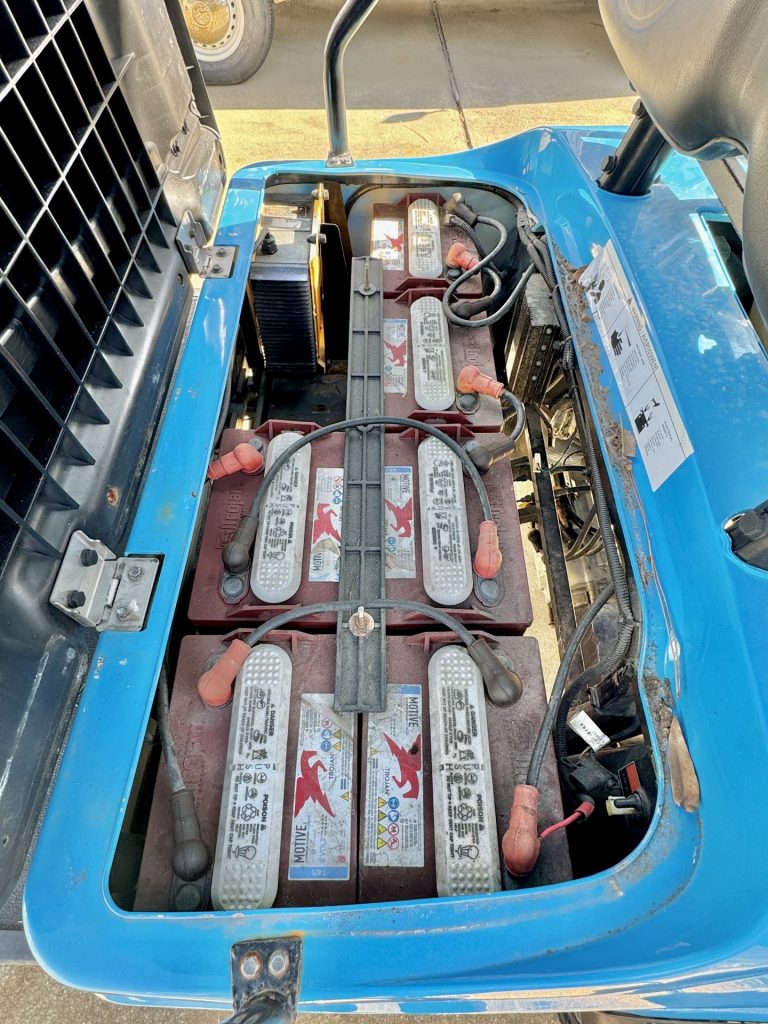
When choosing a golf cart for your short-term vacation rental, it’s critical to avoid any model powered by lead-acid batteries. While these carts may have a lower upfront price, the long-term drawbacks heavily outweigh any initial savings. In a rental environment where performance, reliability, and low maintenance are essential, lead-acid batteries simply don’t deliver.
One of the biggest issues with lead-acid batteries is their limited warranty. Most new carts that use lead-acid technology come with a battery warranty of just 18 months at best. Worse yet, warranty coverage can easily be voided by improper charging—which is incredibly common in a rental setting where guests may not follow instructions. Lead-acid batteries also require regular maintenance and monthly watering, which creates a consistent risk of damage if neglected. This kind of upkeep is the last thing you want in a busy rental business where you’re already managing guest turnover and property maintenance.
Performance is another serious concern. Lead-acid batteries typically offer only about 60% of the range you’d get from a lithium-powered cart. That means your guests are more likely to run out of charge during their trip, which could leave them stranded and calling you for help. These types of situations frustrate guests, result in negative reviews, and create unnecessary stress for property managers and owners. Simply put, lead-acid batteries increase the chances of downtime, complaints, and costly service calls.
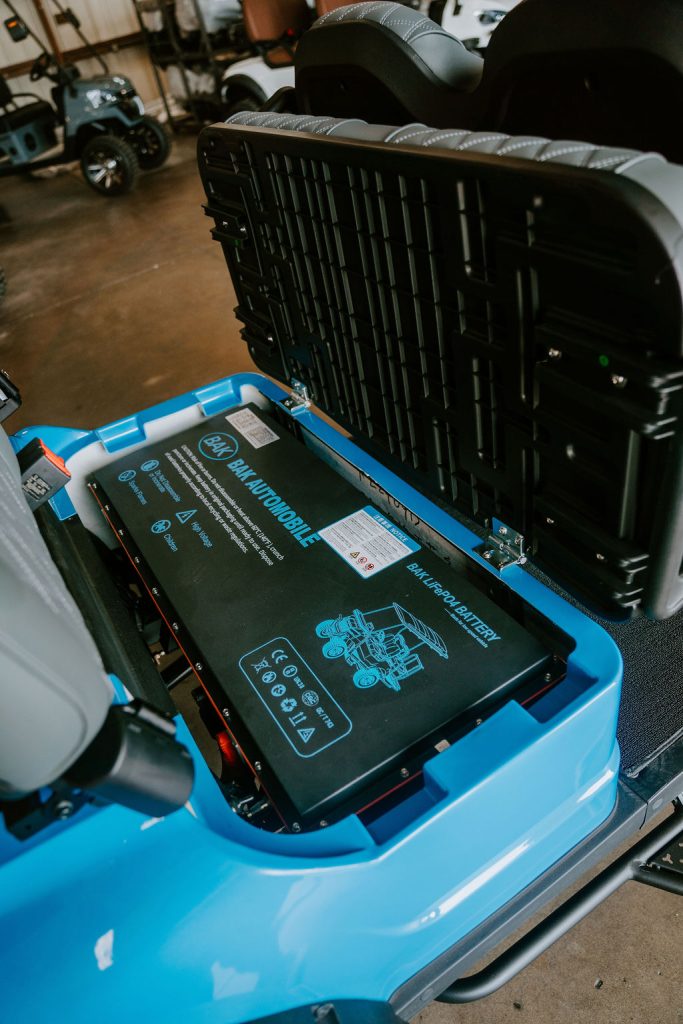
Lithium-powered carts, on the other hand, provide a far superior experience. While they are more expensive initially, most lithium batteries come with a five-year minimum warranty, with some brands offering up to eight or even ten years. Lithium batteries require zero monthly maintenance and are far more reliable under heavy use. Even a basic 100Ah or 105Ah lithium battery will outperform lead-acid by a wide margin, delivering longer range, more consistent power, and fewer issues across the board.
If you’re running a short-term rental, your goal should be to provide the best possible guest experience while minimizing the number of problems you need to handle. Investing in a cart with lithium power means fewer phone calls, better performance, longer battery life, and far less maintenance. It’s better for you, better for your guests, and far better for the long-term success of your rental business.
Choosing the right golf cart for your short-term vacation rental isn’t just about style or cost—it’s about dependability, safety, and long-term value. The wrong cart can lead to frustrated guests, costly repairs, constant phone calls, and in the worst cases, legal liability. That’s why it’s so important to avoid carts that aren’t built to handle the demands of a rental environment.
Carts without proper commercial warranty coverage leave you financially exposed the moment something goes wrong. Models overloaded with flashy tech and cheap features often break quickly and add unnecessary complications. Used or refurbished carts with unknown histories may seem like a deal but can end up being a money pit. Lifted carts, though visually appealing, come with serious safety concerns that can put your guests and your business at risk. And lead-acid battery powered carts simply don’t meet the performance and maintenance standards required for short-term rental use.
If your goal is to run a smooth, hassle-free operation while offering your guests a safe and enjoyable experience, the solution is simple: choose a cart with a strong warranty, solid performance, and proven reliability. Prioritize quality over gimmicks, durability over decoration, and peace of mind over quick savings. A smart purchase today means fewer problems tomorrow—and a better experience for everyone.

